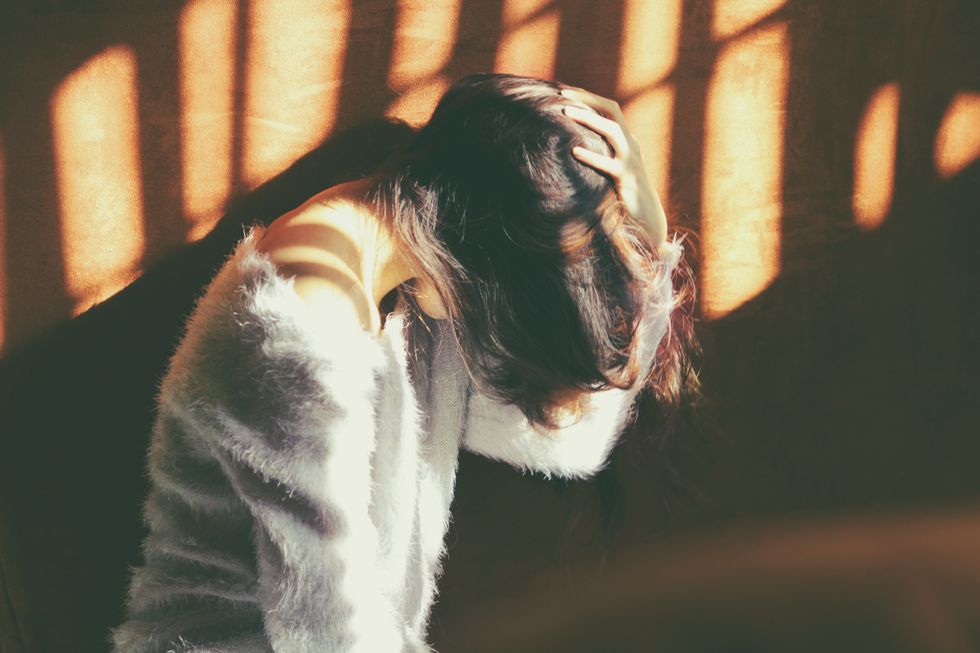Cancer will steal 595,690 Americans’ lives each year. They innocently struggle.
Depression disturbs, exploits, and controls 3.3. million American lives each year.
Two fatal illnesses, undiagnosed or improperly treated, each can be lethal.
Keep this in mind.
A young girl, twelve years old, is diagnosed with cancer. During her chemo treatment, she receives construction paper cards from her classmates, weekly hospital visits from her grandparents, ample love and support from peers in town.
Another young girl, twelve years old, is diagnosed with depression. She receives no treatment. She hides. Once enough bravery amasses within, she admits her painful suffering to her parents. The family discovers that their insurance plan will not pay for their daughter’s treatment. Instead of cards and home-made peanut butter cookies, she is met with suspicious remarks, blackmail, threatening stares, anonymous tweets… victimization.
Both young girls, twelve years old, are sick. Depression is a disease. Cancer is a disease. Depression and cancer mock one another’s end goal: the extinguishing of life. Together, their wins accumulate to the loss of hundreds of thousands of lives annually.
Depression slurps the vitality out of human beings, ravenous for any trace of dopamine.
It binges on delight and purges the satisfaction, leaving the prey feeling hollow, yet simultaneously ripe with desolation. Depression is a black vacuum, shamelessly swallowing all variations of optimism that can be found in the unsuspecting victim.
The victim lacks control over the mental illness. She is psychologically sick. Her wrists are cut. Her body is drained, for she cannot sleep. Depression, the cannibal, has eaten her alive. Her mind hoards warped perceptions and a skewed self-reflection. Her hair is thin, for her lunches in the school bathroom have not been finished.
Yet, the archetypal passerby feels no empathy. Rather, the passerby treats her with disdain or simply ignores her. She is invisible. If people do see her, she is perceived as hardly human, messed up, and “on the wrong track.” The chatty parents in town hypothesize, “she is making poor choices that have derailed her into self-loathing and harmful behaviors.”
Alternatively, the cancer patient is beheld as an innocent victim of a terminal illness. The passerby glances at her bald scalp and immediately, condolence tickles his insides. The passerby hears about her story in the local news and immediately, donates to her GoFundMe that has been shared on Facebook thousands of times. Outpourings of generosity, prayers and goodwill embrace the cancer victim, supporting her as she fights for her life.
Because, who wouldn’t help an ill adolescent girl … who wouldn’t feel empathy towards a young woman fighting for her life against a murderous monster.
Many people.
The people fighting the psychological disorder are hushed. Their misery is their fault. Empathy is nonexistent. Society fails to categorize depression as a grave mental illness. In fact, it is not an illness at all. Nope, 3.3 million Americans must be “attention seekers.” They must have “chosen the life of agony,” of depression.
Wake up, people.
Depression is rejected. It is evil. It is weird. It is dark. It is silent. Like depression, mental illness in general is virtually ignored. The necessary medical and psychological treatments are both remote and unaffordable. Insurance companies refuse to pay for effective treatment, as they do not categorize mental illness as illnesses at all. The support system for those suffering is a mere web, dwindling on a broken branch.
Illegitimatizing mental illness is the reason that depression is the second leading cause of death in this country.
When the twelve-year-old girl, like any individual, is told that her feelings are not real… her struggles are self-implemented… her illness is not worth fighting for… why live?
Cancer and depression both crave the same thing: to kill. Without proper acknowledgement, without proper treatment, without proper support, both twelve-year-old girls will die.
It is time for our society to wake up and smell the roses before seeing them on top of another casket.



















